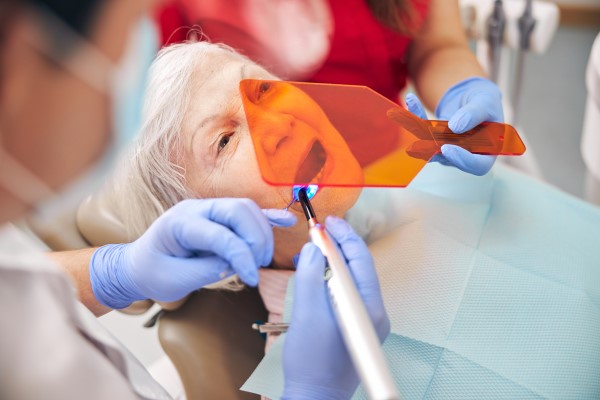4 Questions to Ask Your Dentist About Metal Free Fillings

You might be curious about how metal-free fillings are different than traditional fillings. Your dentist may suggest a metal-free filling instead of one with metal for many reasons. Or you might prefer the look of a metal-free filling. There are many reasons, and knowing more about metal-free fillings can help you decide which is right for you. Here are four questions you can ask your dentist about metal-free fillings.
Are metal-free fillings good to use?
The Food and Drug Administration (FDA) has approved both metal and metal-free fillings for use. However, some patients have an allergic reaction to some of the ingredients in metal fillings. Those patients do not have to worry about the same allergic reaction with metal-free fillings, which makes this type a better option for many. Metal-free fillings are biocompatible, meaning the ingredients do not pose health risks for patients.
What are the types of metal-free fillings?
There are several types of metal-free fillings. Composite fillings are a common choice that the dentist can match to the patient’s existing tooth color. Dentists mix resin and plastic and insert the filling while the material is soft. The dentist uses a special light to harden the material in place. Other people may never know a person has composite fillings in place.
Ceramic fillings are another non-metal option. The dentist can also match these fillings to the patient’s tooth color. Ceramic is a more durable material than composite resin and so could last longer. Ceramic is also more resistant to staining from foods and drinks than composite materials. Because ceramic is a more brittle material, it works well as a larger filling. The dentist may have to remove some healthy enamel if the patient wants a ceramic filling but has a smaller cavity.
Fillings for children
Children can get cavities in baby teeth and may need fillings. Some dentists can install glass ionomer fillings in this situation. Dentists do not usually recommend this type of filling for adults because the fillings are weaker than other options and can crack under pressure. However, glass ionomer fillings work well for children because these fillings can release fluoride to protect the tooth until it is time for it to naturally fall out.
How long do metal-free fillings last?
Metal-free fillings have several degrees of durability. Glass ionomer fillings only last a few years at the most, so they are not suitable for adults in most cases. Composite fillings are less expensive than ceramic fillings but not as durable. These fillings can last for up to a decade, depending on the patient. Ceramic fillings are the most durable non-metal filling and usually last the longest. These fillings could easily crack in patients who habitually grind their teeth and do not wear a protective mouthguard.
Choosing metal-free fillings
There are pros and cons to each type of dental filling. Your dentist is a great resource and can help you figure out which type will work for you. Getting a filling is very important for your health and helps you keep your natural teeth. Your dentist can place fillings in your mouth very quickly and with little to no discomfort.
Are you considering metal free fillings in the Mountain View area? Get more information at https://smilesdental.com.
Check out what others are saying about our dental services on Yelp: Composite Fillings in Mountain View, CA.
Recent Posts
The lifespan of a dental filling is limited. Due to normal wear and tear, a replacement may be necessary. When a filling deteriorates or comes loose, your tooth loses the protection that it has against injury and decay and will be more vulnerable to dangerous bacteria. To avoid more dental issues in the future, you…
Cavities, also known as caries or tooth decay, form when plaque eats away at the enamel that covers the teeth’s outer surfaces, so it is essential to see the dentist immediately for a dental filling or other treatment alternatives if you suspect cavities on your teeth. Cavities may spread and harm the sensitive tissue and…
If you have a cavity on your front teeth, you are likely interested in metal-free fillings. You want something that matches your natural teeth, so no one knows you have a dental filling. You are unsure if these fillings can be used for front teeth, though. Get the details so that you will know how…
Cosmetic dental services have a collection of treatments that can target specific dental issues. Your dentist can assess the issue or issues first. Recommending procedures like dental bonding can give a fast and effective solution. Here are the details on how dental bonding can serve as one of the quickest, most effective cosmetic dental services…


